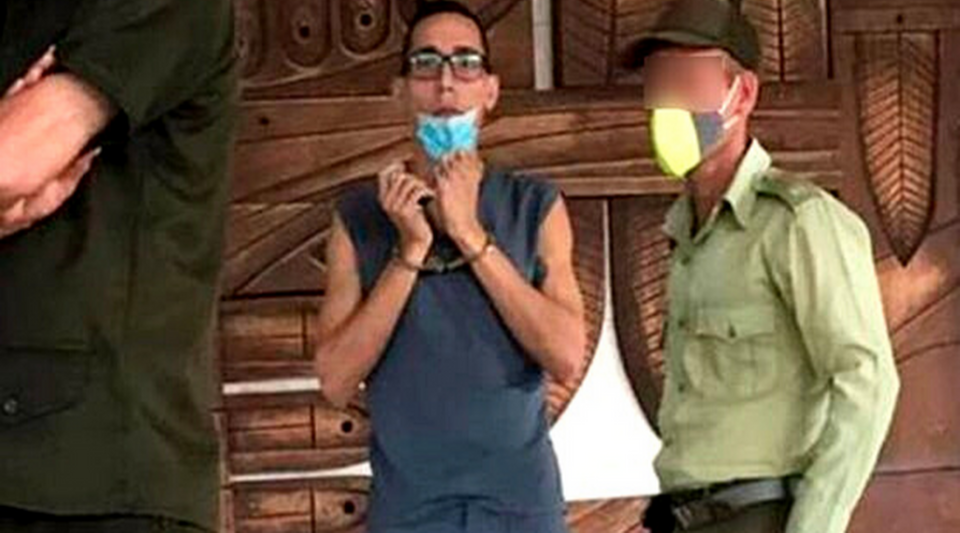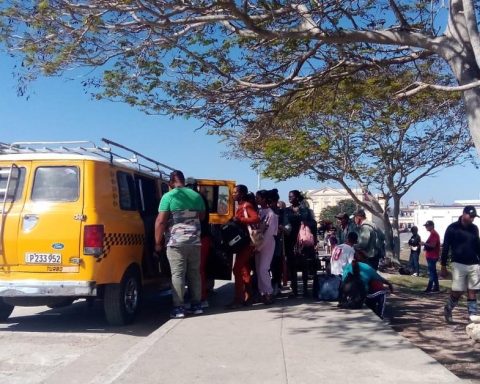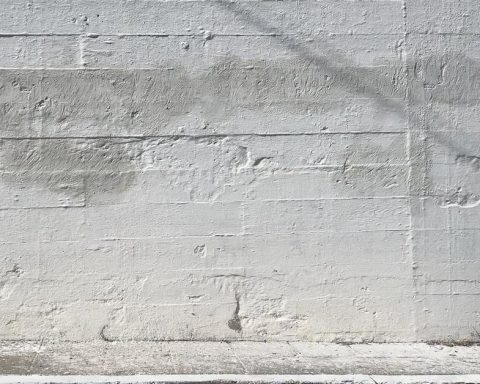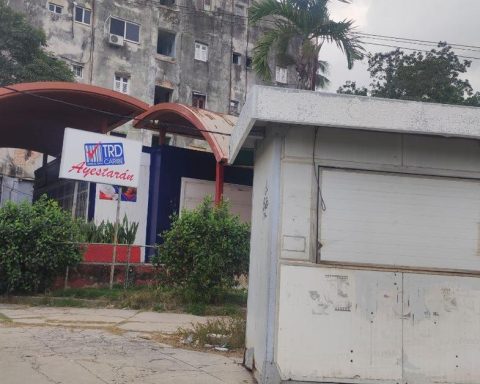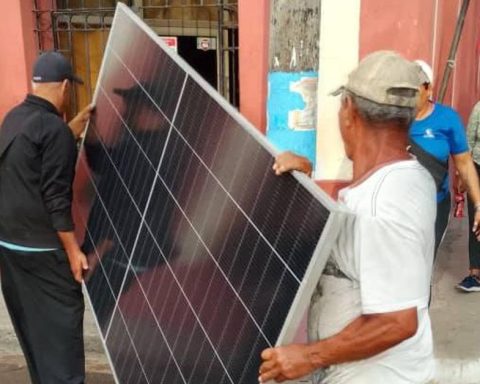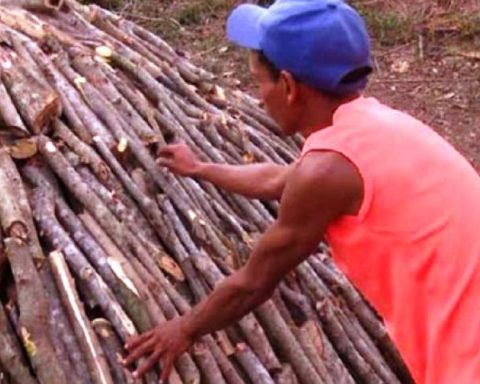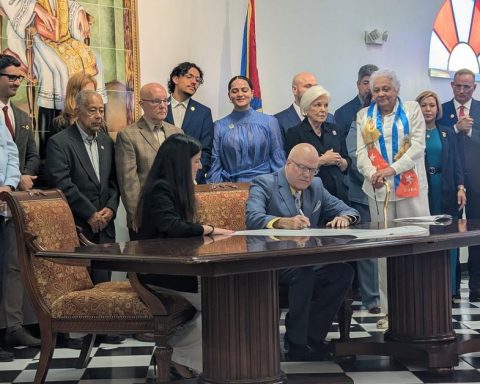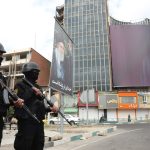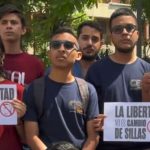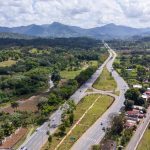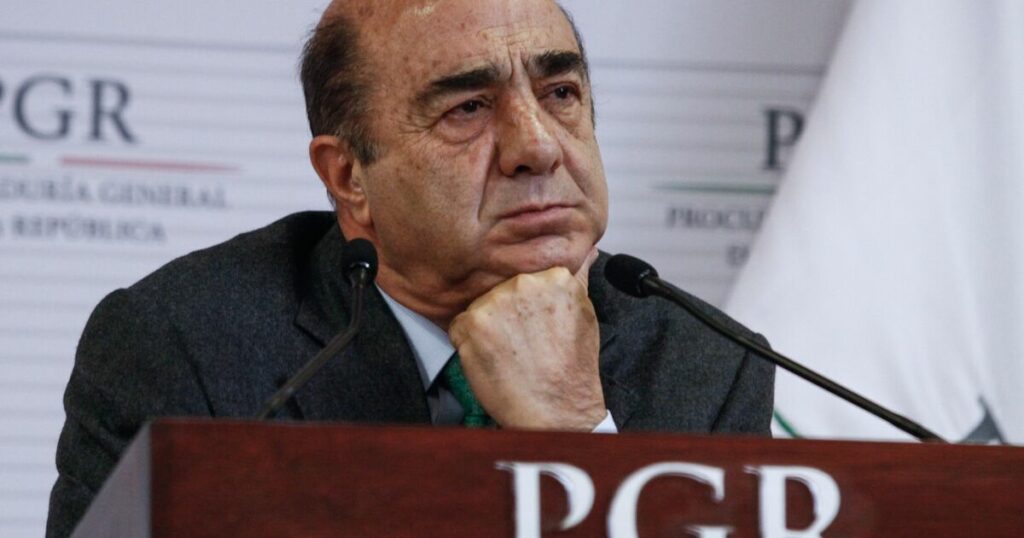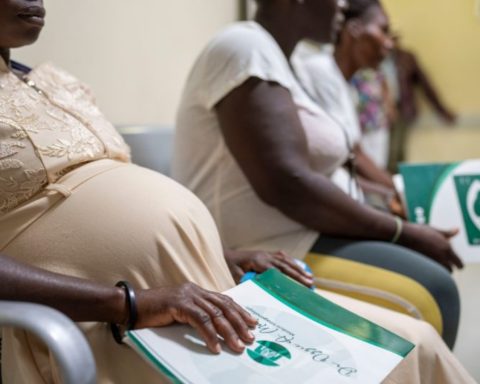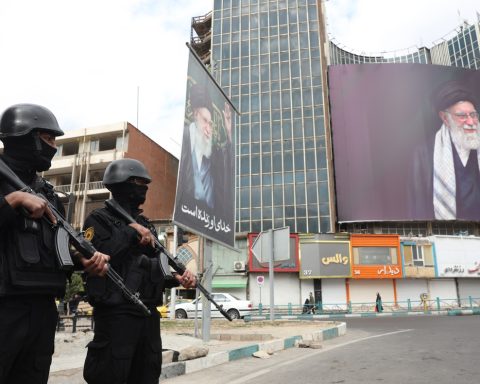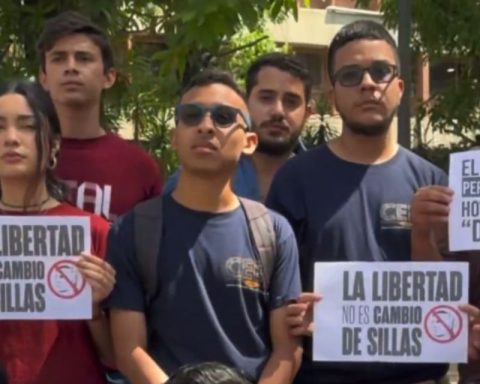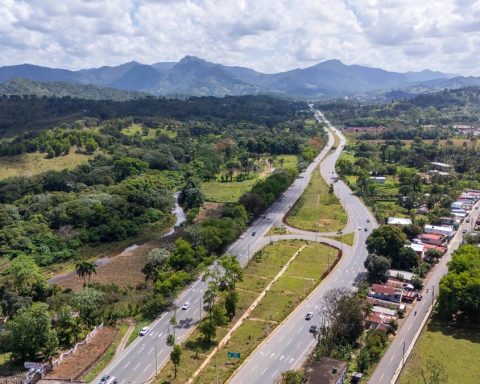The case of Mario Josué Prieto Ricardo, the young Cuban with Spanish citizenship sentenced to 12 years in prison for participating in the demonstrations on July 11, 2021 (11J), faces one of his most delicate moments. Added to his chronic illnesses or illnesses acquired in prison is the weight of his criminal record in the United States, which could make it difficult to transfer him to Spain and serve as an argument for the regime in its strategy of systematically disqualifying opponents.
In Cuba, his mother has undertaken a campaign for the liberation of the young, who is serving his sentence in Holguín, while in Madrid the lawyer Enmanuel Oliva Díaz tries to mobilize the media and exert international pressure to obtain his deportation to Spain. For their part, the consular authorities have been in contact with the family, but they are very inactive in claiming Prieto Ricardo’s rights as a Spanish citizen.
The picture is complicated by the appearance in the United States of a criminal record of the young man that includes the crimes of improper conduct, evasion of justice on two occasions, assault with injuries involving a member of his family, littering in public spaces and – the most serious charge – burglary, with the aggravating night.
An acquaintance of Prieto Ricardo, who shared accommodation with him during his stay in the United States, told 14ymedio several inaccuracies in the version of the young man’s story that the media was handling. “He traveled to Cuba to avoid answering for these crimes,” he says, “he illegally crossed through Mexico, renewed his Cuban passport there, which he had expired, and flew to the island.”
According to that story, Prieto Ricardo arrived in the US in 2014 through the Mexican border. There he was placed in a shelter in Portland, Oregon. “I lived with him there,” he says, “with a group of refugees. He started hanging out with bad people, getting involved with drugs, and the time came when we asked him to leave.”
“He traveled to Cuba to avoid answering for these crimes, illegally crossed through Mexico, renewed his Cuban passport there, which had expired, and flew to the island”
Prieto Ricardo then went to the state of Virginia, where his sister, a cancer patient for some years, lived. “When he returned to Cuba in 2020, she had been deceased for some time and he had remained hidden in Florida because the police were looking for him.”
Unfortunately, Prieto Ricardo relapsed into drugs and alcohol while in Virginia, and was arrested multiple times for possession of marijuana and contempt of court, although the filing lists these charges as “misdemeanors.”
Seeking a way out of his legal situation, the young man returned via Mexico to Cuba, where it was impossible for him to pick up his Spanish passport in December 2020 due to the closure of the consulates during the pandemic. With the airports paralyzed, Mario Josué was unable to leave the island to travel to Spain.
In July 2021, he joined the peaceful protests in Holguín and was imprisoned on charges of sedition.
Since then, his medical condition – including various psychiatric ailments – has continued to worsen. “My son is a good man,” his mother, Niurka Ricardo, assured this newspaper, “although he is emotionally affected.” According to her, the crimes imputed to her must be nuanced: the robbery attributed to her was, in fact, an abrupt collection of her things at the home of her partner in the US, whose complaint the young woman withdrew.
“He consulted his case with a Virginia lawyer and told him that the accusation of robbery was not admissible,” he says. “The couple had closed the doors and he had no other way to get in than breaking glass. There was an argument and he took his things. That’s the story why we asked him to come and be with us, to take care of him.”
Meanwhile, Niurka Prieto tries, despite State Security restrictions, to accompany her son to the provincial hospital in Holguín, where his suffering has reached a critical level. The poor conditions of the prison, the poor diet and the stress generated by police treatment have degraded her health.
“He doesn’t stop shaking, that’s why they can’t do MRIs on him. There are no sedatives to calm him down either, and the ones we were able to get him have to be given in small doses, because he can’t stand it,” laments Niurka. He doesn’t stand up to endoscopy either, and he was prescribed B vitamins, but they are not available at the hospital.
His psychiatrist, on the other hand, recommended vigilance and company at all times, because Mario Josué could commit suicide in his current depressed state.
The situation is, clearly, delicate, and the fate of the young man is in the hands of the same regime that has imprisoned more than 1,700 citizens, mostly young people, for requesting freedom peacefully, and of the consular authorities of Spain.
The Justice 11J organization has pointed out how many of these trials have had an exemplary character and that the sentences, applied by courts at the order of the regime, have been disproportionate.
“He doesn’t stop shaking, that’s why they can’t do MRIs on him. There are also no sedatives to calm him down, and the ones we were able to get him have to be given in small doses, because he can’t stand it”
Enmanuel Oliva Díaz, a young Spanish lawyer of Cuban origin – who arrived in Spain at the age of 13 – who represents Prieto Ricardo, without compensation, guaranteed 14ymedio that the alleged crimes committed in the United States should not influence his defense in Cuba, where he has been sentenced to a long prison sentence for the sole fact of exercising the right to demonstrate recognized in the Cuban Constitution. “I will continue trying to get him released and transferred to Spain.”
From Madrid, the lawyer has tried to offer the greatest possible visibility to the case, going to the national newspapers and the opposition parties so that, in the next debate in Parliament, they ask the President of the Government, Pedro Sánchez, a question about the situation of the Spanish political prisoner in Cuba. He has also contacted the Spanish consular authorities, who are obliged to stand up for the young man even though he also has Cuban citizenship and the Havana regime does not recognize dual nationality.
These efforts, Oliva points out, are essential to pressure the Cuban government at the international level. “There has been a change,” says the lawyer, in close communication with the prisoner’s family, who let him know that he had noticed a better disposition from the prison authorities due to Prieto Ricardo’s health problems.
“If with the tests that they do in Holguín they can’t find what he has, they will transfer him to a hospital in Havana,” says the lawyer, insisting that the best option for the young man would be his transfer to Spain, where he will be able to attend their ailments and heal. Oliva himself intervened so that Prieto Ricardo’s mother could pick up her Spanish passport at the Havana Consulate, where they refused to give it to her.
________________________
Collaborate with our work:
The team of 14ymedio is committed to doing serious journalism that reflects the reality of deep Cuba. Thank you for joining us on this long road. We invite you to continue supporting us, but this time becoming a member of our newspaper. Together we can continue transforming journalism in Cuba.
